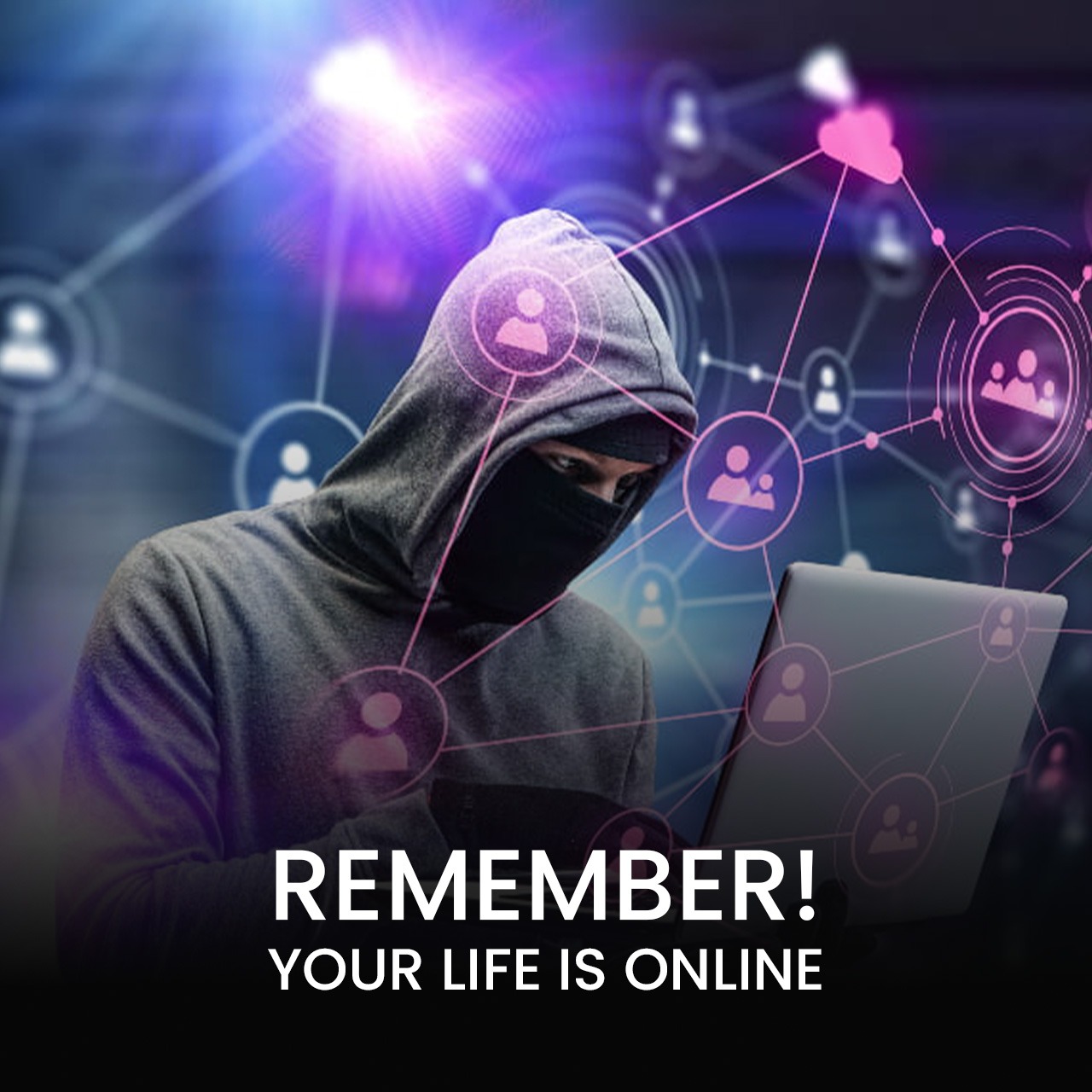Remember - Your Life Is Online
One of the crucial functions of the modern information society is the Internet, which connects billions of people worldwide. The internet today is an essential aspect of everyone's life, from young children to elderly people and everyone in between. We search and shop for everything from clothes to electronics to food, we pay our bills, we do online transactions and online banking, we interact with others, and we spend much of our daily professional lives—all online.
Every day, people receive dozens of notifications, and they frequently feel trapped in their online lives. Even when they are not looking at the devices, they hear the notification sound and recall the notifications bar. They can mentally picture the screens, noises, and icons. As a result, it's likely impossible for us to fathom life without the internet and online. The internet is a fantastic resource for keeping in touch with friends and family, expanding one's knowledge, developing digital and other skills, and exchanging ideas, images, and videos. Being linked has so many wonderful benefits. But keep in mind that the internet can also fundamentally alter our life.
The majority of social networking sites will need you to build an in-depth personal profile, in which you may be requested to list your current and previous places of employment, your educational background, your present hometown, even your email and mobile number. All of this information puts you at risk for identity theft or other types of social engineering attacks, and it also gives con artists access to your email and social media accounts. When we use social media, many strangers frequently see, like, and comment on our work before sharing it with their own communities. We never truly know how we're being perceived in the virtual world when we put something online and reveal a piece of who we are. Anything you post online or send over a "secure" chat message can be copied and shared with others, regardless of how strict your privacy settings are.
Social networking platforms encourage users to expose every detail of their private life. With the press of a button, it is simple to submit a status update, a photo, an event, or a "check-in". Unfortunately, this can result in FOMO, or Fear Of Missing Out, a worrying emotion. FOMO
is a persistent sense that other people are doing things without you or that time is moving too quickly for you to notice. It's possible for social media accounts to make us believe that other people's lives are significantly better than our own. When someone logs on, they can see other people's vacation images and wonder why their lives are so dull. They could feel insecure about their own life as a result of this. They could be motivated to talk about their personal "highlights" whenever possible in an effort to impress others and come seem as "interesting."
It pays to be aware of the risks involved while using the internet, whether for personal or business reasons. Once you are aware, you can take precautions to ensure your safety. We should always stay updated with technology and make use of privacy settings to keep ourselves secure while taking advantage of all that social media has to offer.
The most crucial thing to keep in mind when using the internet is that we are accountable for our own actions.Numerous social networking sites also permit third parties to "tag" you in images or videos with information about you that you would desire to keep private. These websites typically feature privacy controls that let you choose who can view your profile information, read your postings, "tag" you in content, and view items in which you have been tagged. Even the greatest and most understandable privacy settings cannot prevent everything you publish on a social networking site from becoming public, just as any email you send has the potential to be stored and forwarded to everyone in the entire world by a single receiver.
If we're not careful, our online lives could end up being a silent source of ongoing worry that influence everything. However, there are things you can do for yourself. You may disable social media app notifications, cut down on how much time you spend using them, set time restrictions, and more.
Check the privacy settings. Examine the privacy settings and rules of all social networks and other platforms where you have a profile and/or upload content. If you are unable to locate the privacy options, get in touch with the owner of the website and request this information. You should regularly check your privacy settings after making changes. It's crucial to keep in mind how many social networking websites have modified their privacy settings and guidelines throughout time. Make protecting your information your first priority. Update your antivirus program to protect your machine. Updates are crucial at all times! Use clever passwords to secure your profile. And before you click on a message or invitation, always independently confirm its validity. You should take into account that what you submit might be seen by others even with the best privacy settings. Use common sense when posting information publicly online and think before you act online.
Remember,
TAKE CHARGE OF YOUR PRIVACY!!!




